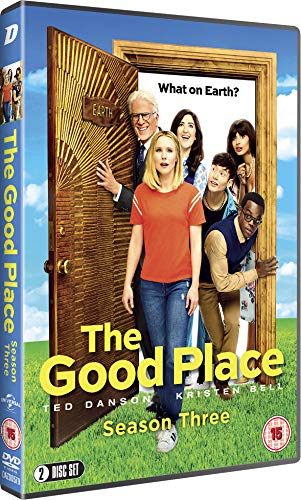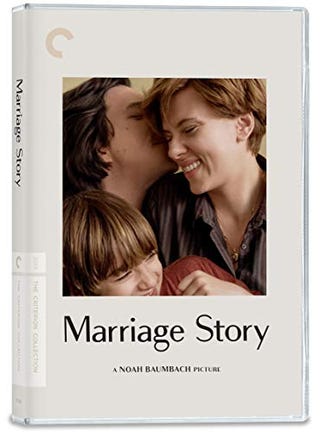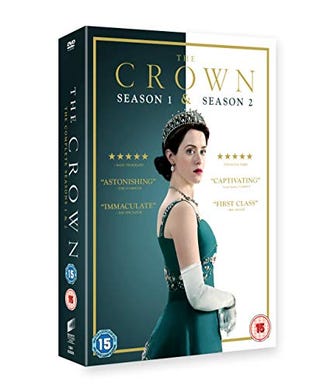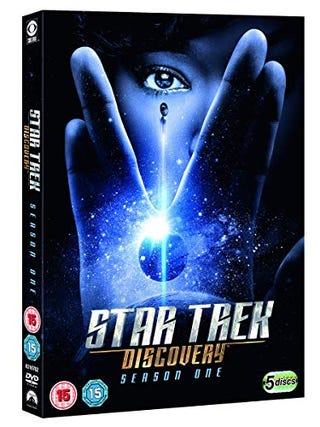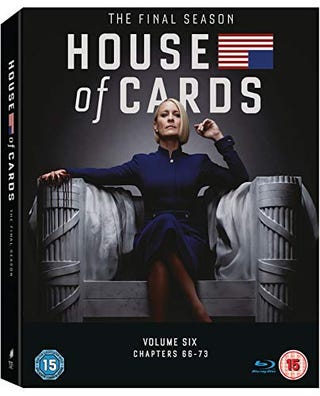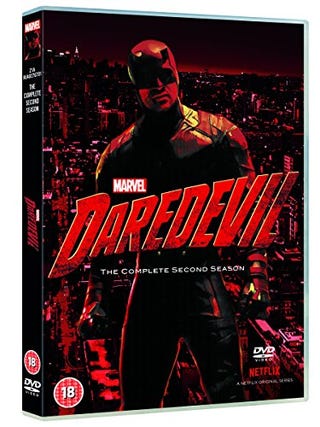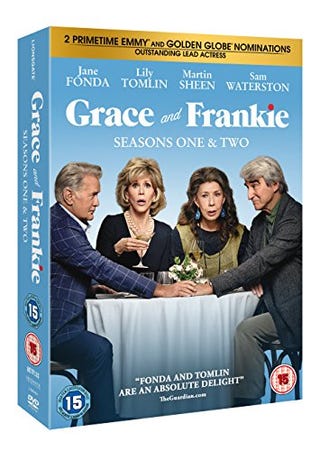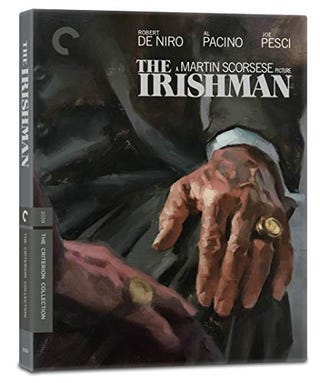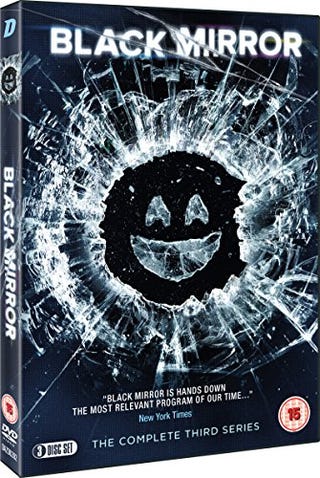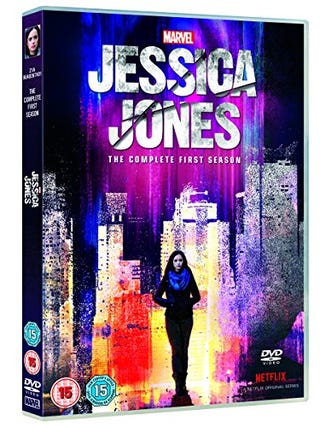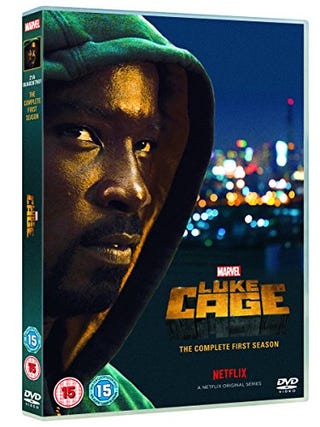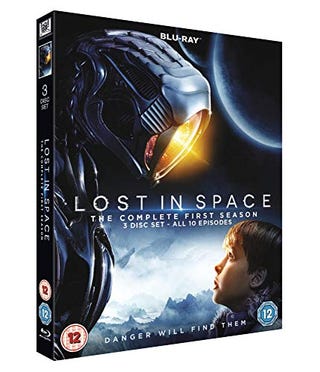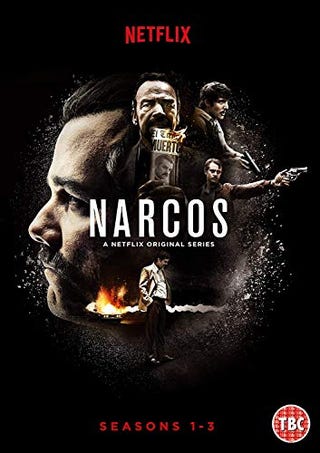Rainbow Crew is an ongoing interview series that celebrates the best LGBTQ+ representation on screen. Each instalment showcases talent working on both sides of the camera, including queer creatives and allies to the community.
Next up, we’re speaking to Special star and creator Ryan O’Connell.
Special season two spoilers follow.
Has a show ever been more aptly named than Special? Ryan O’Connell’s semi-autobiographical story is groundbreaking in every sense of the word. And no, we’re not just talking about season two’s already iconic rendition of “How Many Licks?”
Now that the length of each episode has been doubled in Special‘s second – and final – season, there’s even more space to explore the often unseen intersection between disability and queerness that this show depicts so well.
“We obviously are full of emotional moments, but it’s done through this ‘LOL’ lens,” says Ryan, and that’s more true than ever in season two. With a script that effortlessly juggles the fetishisation of cerebral palsy with a sad version of Lil’ Kim’s cunnilingus anthem, Special is one of those all-too-rare shows that really does have something new and vital to say.
That’s precisely what makes this story so special remarkable, and that’s also why we’re finding it hard to forgive Netflix for cancelling it after just two seasons. We caught up with Ryan to commiserate Special‘s premature end, and along the way, we also discussed gay sex, newcomer Buck Andrews, and why the show’s success has been so affirming.
I have to start by asking: Why is Special ending after just two seasons?
Well, we got cancelled [laughs]. That’s why!
I was hoping it might have been your choice!
I know, I know. I think I would present a lot chic-er, if I was like, “This is my vision. I only envisioned two seasons, one of which was truncated. That’s my journey. That’s my story.”
But no, unfortunately, the show is ending non-consensually. But I will say that Netflix told us from the very beginning so I was able to cram really complete seasons in. I feel very, very happy with the way – it does feel, actually, like a full, complete story.
Did Netflix explain its decision to you?
I think they’re in a space where they’re subscriber-based. So I think they’ve found through the research of the algorithm or whatever the f**k that they don’t really get a lot of new subscribers from season three or season four of a show.
It’s not just Special that isn’t getting a season three. I think a lot of shows are not advancing between a second season and a third season. I think that’s the nature of Netflix and how it works, rather than a reflection on Special.
If Netflix hadn’t ended things, what would you envision next for Ryan in season three?
The funny thing is, I’ve gone through a journey with this show ending. First, I was upset. I really imagined three seasons. But now, it’s very bittersweet, because this show’s been with me for a very long time. We went out and pitched this in 2015. Season one aired in 2019. That’s four years.
And in between seasons one and two, there were two years. So this has been six years of my life. Most people get six seasons out of six years, and I got two.
I actually don’t really know what I would imagine for season three, because season two feels so complete to me. I’m kind of ready to move on, a little bit. It feels like we left Ryan in a really good place. I don’t know what else we could do with that messy bitch [laughs].
Season one had this unforgettable scene where Ryan loses his virginity and now season two delves even further into his sex life. Can you talk me through why it’s so important to continue showing gay sex like this on screen?
Gay sex is my muse. I will die on any gay sex hill. You know, I’ve been having sex since I was 17, not to brag, and I just feel like: why has gay sex not been portrayed the way that straight sex has?
I remember, when Girls came out, it was revolutionary at depicting the kind of bad sex that you could have. I always wanted to do that for gay sex. And not just bad sex. But the reality is, sex is a lot of different things. Sometimes, in a same-sex encounter, it can kind of vary from being amazingly erotic,to being kind of humiliating, to being empowering, to being embarrassing, to being funny. It can be all of those things.
I don’t think I’m having sex wrong. I think the way I’m having sex is pretty normal. So I’m just like: why is there a stigma attached to it? Besides homophobia?
I just feel like the gay sex that we have seen on screen is usually cloaked in some sort of closeted shame, or it’s heavily eroticised, almost like porn. That didn’t feel true to me. So it was time to get to work!
And work you did! How do you feel about taking part in those nude scenes yourself?
I mean, it’s never my favourite thing. The first week of shooting season two, it was all the sex scenes, and I felt like I’d spent most of the week in a cock-sock. I didn’t love that. I remember sometimes being like, “Oh, goddamnit. Why am I doing this? This is so stupid!”
And then I remember, “Oh, I’m the bitch who wrote it. I have nobody to blame but myself.”
I think there’s a part of me – as much as I loathe doing it, there’s an exhibitionist side to me that’s sort of like, “I dare you to look at my body. You’re going to have to look at my body.” Because it felt like bodies like mine were erased. It’s just really important to create that kind of visibility.
And Max Jenkins is a friend of mine. So I felt familiarity with him, and comfortable. He was really, really easy to shoot with. I feel like if I had a straight actor, and I was like, “OK, so this is what anal sex is about” – I would have deleted years off my life.
There’s a really pivotal storyline in season two where Ryan hooks up with a man who fetishises his cerebral palsy. Can you talk me through your decision to include that arc?
I personally have never been fetishised. I’m still looking for the right one. But I thought it was really interesting to tell a story about consensual sex that you wouldn’t necessarily consent to if you liked yourself more. I think we’ve all found ourselves in sexual situations that we have not loved, but we don’t really have the courage to find our way out of.
To me, that sex scene was a really good marker to show Ryan’s growth, because I feel like at the beginning of the season, he’s operating from a place of: “I’m just lucky to be here! I’m just lucky that this hot actor who’s hot wants to f**k me! So he can f**k me however he wants!”
And through the course of the season, I think he does gain a lot more agency, to the point where he’s actually walking away from a potential love interest or relationship, because he wants to be alone.
I think fetishisation is really interesting. I don’t want to put a value judgment on it, because I think that fetishisation can be good if it truly is consensual, and it’s what both parties want. But I think it can exist in a grey area. And in Ryan’s case, he didn’t like it. But again, he didn’t have enough agency yet to say no.
Season two introduces a new cast member called Buck Andrews who is clearly going to be a fan-favourite from the get-go. Can you tell me how he got involved with the show?
Buck is on the spectrum with autism. He is sort of like, in a lot of ways, my twin. We’re very, very similar, in an Eerie Indiana way. I know that autism and cerebral palsy are different disabilities. Society doesn’t, because I get confused for autistic all the time. But I know that. It’s just like, meeting with Buck, I almost felt emotional, because it was the first time I’d really met someone that reminded me of myself, which I’d never had my entire life.
This content is imported from Instagram. You may be able to find the same content in another format, or you may be able to find more information, at their web site.
I was like, “OK, I’m hiring him, and I don’t even care if he knows how to type when he’s in the room. That’s what’s happening.”
So he ends up being the writers’ assistant, which he was great at. And then maybe a few weeks in, we started thinking about the character of Henry. And I was like, “Oh, that’s Buck.”
Because I knew he had charisma, and I knew he had magnetism. As a first-time actor with season one, I knew he already had the bones of what makes a good performer, and the rest he could learn. He auditioned, and he did such an incredible job, I was blown away.
I remember some people were saying, “He’s never acted before.” I was like, “I never acted before. What are you f**king talking about? I was a first-time actor who became the star of my show, bitch. Are you kidding?” I just feel like that’s the biggest joy of being able to do this show. It’s being able to give people opportunities that maybe others wouldn’t typically invest in.
At the end, I thought it was so interesting that Henry and Ryan became best friends, instead of a couple. I think a lot of people will be surprised by that.
That would be very straight. That is very heteronormative. When we were initially crafting it, I think we were naturally gravitating towards a love-triangle moment between Tanner, Henry, and Ryan.
I was like, “This doesn’t feel true to gay culture.” Gay culture is, a lot of times when you first meet someone, you being like, “Hmm. Should we f**k? Or are we just friends? Or should we just f**k and find out if we’re friends or not?”
There is that period when you’re sniffing around each other, seeing what the dynamic is. That just felt very, very true to queer life. So the way that it goes down – I mean, I love it. It’s almost antithetical to storytelling because you’re removing the stakes [laughs].
It’s like when they kiss, and Ryan says, “OK, I can’t be with you.” And then he goes to the prom, and he sees Henry. You’re expecting Henry to be disappointed. He’s like, “Babe, it’s fine. We kissed once. I brought a date.”
And it’s so true. I’ve kissed a lot of my gay friends once or twice, and then we moved into a friend zone. It’s not a big deal. So I just felt like that was exciting, to highlight that queer specificity. Because I think, again, people would be like, “It’s a love triangle. He should be with Henry.” It’s like, “No, babe, they are both bottoms.”
What do you want to see happen more in queer stories moving forward?
I just want to see complicated, messy characters. Representation is important and there is this need for diversity. But I just want to make sure that people don’t become holograms for their suffering. I think we need to grant people the full spectrum of the queer community.
I feel like we’re allowed to exist but within these narrow confines. People are super-complicated, and sometimes people are assholes, and sometimes people are not acting the way that you think a minority should act.
This content is imported from Instagram. You may be able to find the same content in another format, or you may be able to find more information, at their web site.
I think that initially, it was like, “Well, if this character’s disabled, he needs to be really amazing and sweet and loveable and this and that.” I think we’re ready to move past that. I think it does a disservice to the community that you’re representing if you don’t really let them be awful sometimes.
Ryan doesn’t always do the right thing in Special. Sometimes he is really selfish. When Tanner shits on his dick, he’s not considerate. It’s crazy, because Tanner was considerate to him in episode three when he had topping anxiety.
Ryan doesn’t extend that generosity to Tanner, which I thought was so interesting. Because, yeah, Ryan can be kind of a brat. Sometimes he doesn’t extend the generosity to people that is extended to him. And that’s OK. That’s allowed.
Would you mind sharing the kind of obstacles you’ve faced specifically because of your identity while working in this industry?
I don’t think people knew what to do with me. There’s no reference point for being queer and disabled in Hollywood. I don’t think people understood where to put me. So that was a real challenge. I had to really force my way in, and carve out space for myself – like, squeeze the f**k in. And that was really frustrating because I don’t see my existence as being that confusing or complicated. But just by virtue of no-one like me being really that visible, it is to some people.
You know, we went out, and we pitched Special in 2015, which, in woke Hollywood years, was like 400 years ago. People really loved the pitch, but they just didn’t know what to do with it. It felt like they were handed a hot potato and just needed to push it off to someone else.
That was really hard because, on a personal level, it kind of reaffirmed what I feared, which was that my existence is too fringe and too strange for anyone to understand, or it doesn’t have value.
That’s what’s been so affirming from the success of Special. I always knew that this story could resonate, even beyond being queer and disabled, because when you strip us down to our barest bones, we really are all very similar in terms of our wants and desires, you know? And that’s the whole point of storytelling. It’s to create empathy and understanding, and show people “we’re not all so different”.
Looking back over your career so far, what’s the one thing you’re most proud of?
I think, honestly, the sex scene in Special, because it was exactly what I wanted it to be. It’s very rare as an artist where the exact thing you wanted it to feel and look like, becomes exactly that. That scene was just so important to me.
I knew when we shot it that we had something really amazing. I could feel it on set. And I remember, when we got the first cut – you know, the first cut is the deepest. It’s a nightmare. You get the first cut, and you’re like, “What did we…? How the f**k are we going to fix this mess?”
But that scene – even in its first iteration – was incredible. It felt like such a proud moment because it was just the complete distillation of the work that I want to do, and what I want to say.
Special season 2 is now available to watch on Netflix.
Digital Spy’s digital magazine is back – and we’ve got an EXCLUSIVE interview with Dave Bautista. Read every issue now with a 1-month free trial, only on Apple News+.
Interested in Digital Spy’s weekly newsletter? Sign up to get it sent straight to your inbox – and don’t forget to join our Watch This Facebook Group for daily TV recommendations and discussions with other readers.







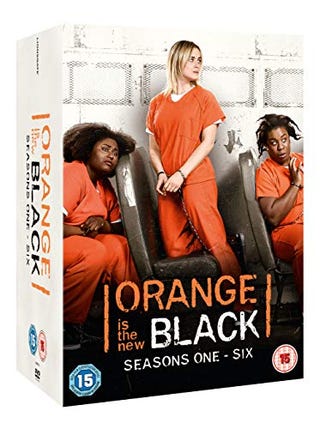
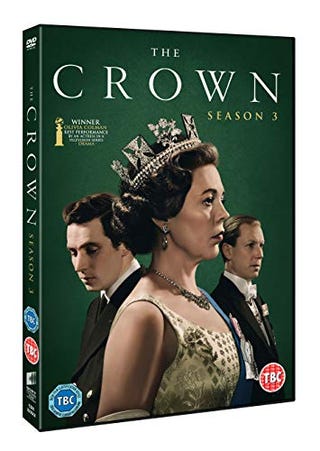
![Star Trek Discovery Season 2 [DVD] [2019] Star Trek Discovery Season 2 [DVD] [2019]](https://hips.hearstapps.com/vader-prod.s3.amazonaws.com/1600241843-51s-JjQrHaL.jpg?crop=1xw:1xh;center,top&resize=320%3A%2A)
